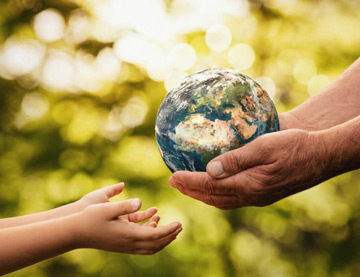Banner Image

Australia's rich cultural diversity is one of its most significant strengths. Teachers have a unique opportunity and responsibility to prepare students to become global citizens who can thrive in a multicultural world. Fostering global awareness and intercultural competence is not just a noble endeavour; it's a necessity. In this blog, we'll explore ways Australian teachers can promote these values and skills in their classrooms.
- Celebrate diversity: Australia's multicultural landscape is a treasure trove of cultures, languages, and traditions. Begin by celebrating the diversity in your classroom. Encourage students to share their cultural backgrounds and stories. Create an inclusive atmosphere where everyone's unique perspective is valued.
- Integrate multicultural content: Incorporate multicultural perspectives into your curriculum. Explore literature, history, and art from various cultures. Discuss global issues and encourage critical thinking about their implications. This not only enriches your students' understanding but also makes learning more engaging.
- Language learning: Encourage students to learn other languages. Language is a gateway to culture, and understanding different languages fosters a deeper connection to the people who speak them. Offer language classes or invite multilingual guests to your classroom.
- Travel without leaving: Not everyone has the opportunity to travel abroad, but you can bring the world to your classroom. Use technology to connect with classrooms in other countries. Virtual exchanges and online collaboration with international students can provide a global perspective right at your fingertips.
- Current events and global issues: Engage students in discussions about global events and issues. Explore topics such as climate change, migration, and global health. Encourage students to analyse multiple perspectives and discuss potential solutions.
- Cultural celebrations: Celebrate international events and cultural festivals. Invite students and their families to share their traditions with the class. It's a great way to learn about different cultures and create a sense of belonging for all students.
- Promote empathy and open-mindedness: Teach the importance of empathy and open-mindedness. Encourage students to see the world through the eyes of others. Share stories of people who have made a positive impact on the world through their understanding and empathy.
- Model intercultural competence: Be a role model for intercultural competence. Show respect for all cultures and model the behaviour you want to see in your students. Demonstrate a willingness to learn from others, ask questions, and be open to new experiences.
- Global projects and service learning: Encourage students to engage in global projects and service learning. Working on initiatives related to global issues, such as sustainability or poverty alleviation, can inspire a sense of global citizenship and responsibility.
- Assess global competence: Incorporate assessment methods that measure students' intercultural competence. This may include reflective essays, presentations, or projects that require them to demonstrate their understanding of diverse perspectives.
- Professional development: Stay informed about best practices in global education. Attend workshops, conferences, and collaborate with other educators to share ideas and resources.
- Encourage lifelong learning: Instil in your students a love for learning about the world. Encourage them to travel, read, explore, and seek out new experiences throughout their lives.
By fostering global citizenship and promoting global awareness and intercultural competence, teachers can help their students become well-rounded individuals who appreciate the beauty of diversity and contribute positively to an interconnected world. Educators have the power to shape future leaders who will carry the torch of understanding, empathy, and unity in our multicultural society and beyond.
